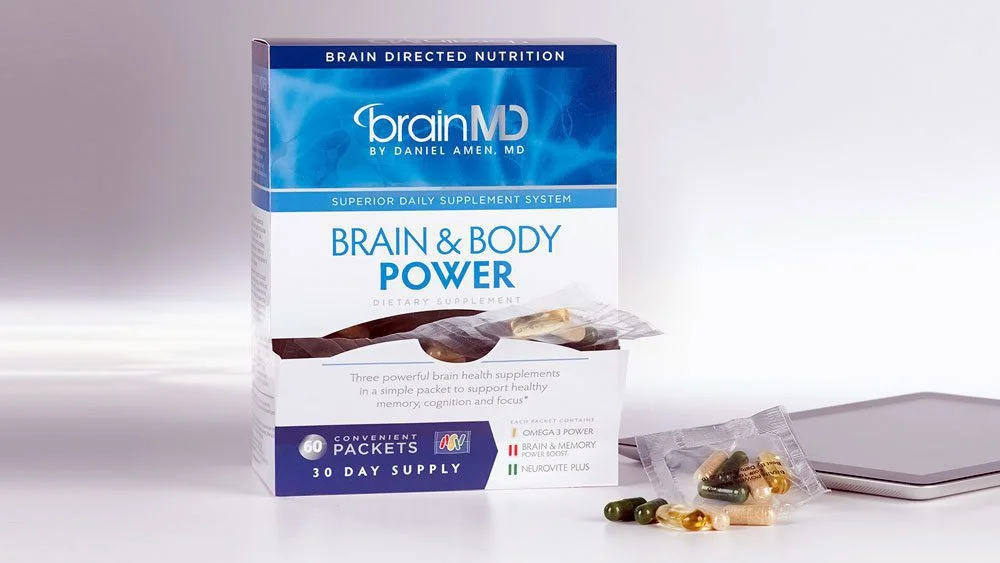Brain-Healthy Ways to Soothe Your Stress
In today’s world we’re faced with all kinds of stress on a daily basis—there’s no escaping it! And while most people think of ALL stress as bad, it reality it is both good and bad for you.
Surprised? Here’s what I mean…
A little bit of stress is actually good because it can motivate you and lead to an appropriate amount of worry to help you meet your goals. However, too much stress can:
- decrease your brain function
- create hormone imbalances
- make you gain weight
- leave you more vulnerable to illness
Unfortunately, when people have too much stress in their life, they often turn to unhealthy ways of coping with it, such as using alcohol, illicit drugs, or food to relax. However, these choices end up doing more harm than good.
Instead, here are 11 brain-healthy ways to relax and reduce your stress:
- Deep breathing is a very effective method for overcoming stress; one that can be done anywhere, anytime! When you take shallow breaths, it reduces the amount of oxygen that reaches your brain cells, reducing overall brain function. As you inhale, let your belly expand. When you exhale, pull your belly in to push the air out of your lungs. This allows you to expel more air, which in turn, encourages you to inhale more deeply.
- Exercise will help you manage stress by immediately lowering stress hormones and helping you become more resistant to stress over time. Raising your heart rate through exercise also makes you handle stress better because it raises beta-endorphins, the brain’s own natural morphine!
- Meditation is a wonderful way to soothe your mind and help you create a state of deep relaxation. Interestingly enough, meditating actually stimulates the brain; increasing blood flow to the areas responsible for attention and forethought, while calming down the areas that perceive pain. And you can receive the positive benefits of meditating in just minutes per day.
- Social connections are incredibly important to your overall health and well-being. Never underestimate the power of being around the right people! The health habits of the people you spend time with have a dramatic impact on your own health and habits. So surround yourself with people who are happy, upbeat, and kind.
- Yoga has been shown in a number of studies to help reduce stress and anxiety. Its unique combination of physical poses and deep breathing techniques can also enhance your mood and overall sense of well-being.
- Listening to soothing music can help relieve stress by triggering biochemical stress reducers in your brain, according to research.
- Laughter can reduce the physical effects of stress on the body. Lighten up by tuning in to your favorite sitcom or video, reading the comics, or chatting with someone who makes you smile.
- Getting a massage can do more than alleviate physical pain. Studies suggest massage is also beneficial for fighting stress.
- Natural relaxation substances can be incredibly effective in reducing stress. Drink some spearmint or chamomile teas. Put dried lavender in a vase near your bed. Use calming essential oil aromas such as clary sage, bergamot, or ylang ylang. Try BrainMD Health’s very own Everyday Stress Relief, which includes well-studied herbs and nutrients to support your body’s response to stress on multiple levels.
- Spending time with your pet has been shown to reduce stress by increasing levels of the stress-reducing hormone oxytocin and decreasing production of the stress hormone cortisol.
- Keeping a journal may be one way to effectively relieve stress-related symptoms due to its meditative and reflective effects. A gratitude journal can really help put things in perspective, so every day, write down three things that you appreciate and make you happy.
Latest posts by BrainMD Life (see all)
- Veterans Day: One Warrior Shares Some of the Best Ways to Heal from Trauma - November 2, 2023
- Could Your Mood Issues Be Linked to a Pain In the Neck? - October 13, 2023
- What’s At the Root of Your Sciatic Nerve Pain? - September 20, 2023



